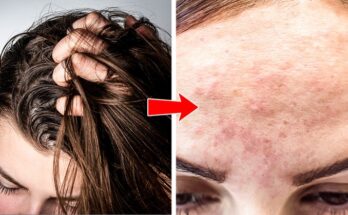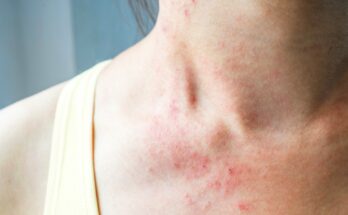
SB.. Skin Signals Used to Diagnose Serious Diseases
Your skin can tell you a lot about your internal health. While many of us associate skin problems with cosmetic issues such as acne or dryness, medical experts emphasize that certain skin changes may indicate underlying health conditions—some of which may require urgent attention.
Understanding how skin reflects internal health can help in the early detection of diseases, potentially leading to better outcomes. In this article, we’ll explore several skin-related symptoms that could signal something more serious and when it’s best to consult a healthcare professional.
Disclaimer: This article is for informational purposes only and should not be considered a substitute for professional medical advice, diagnosis, or treatment. Always consult your physician or qualified health provider with any questions regarding a medical condition.
1. Dark Patches on the Skin
Dark spots or hyperpigmentation on the skin may arise for several reasons, including sun exposure, aging, or hormonal changes. However, in some rare cases, darkening of the skin, especially around the creases of the hands, face, or areas exposed to friction, may be associated with Addison’s disease, a rare condition involving adrenal gland dysfunction.
According to the National Institutes of Health (NIH), other symptoms of Addison’s disease include:
- Chronic fatigue
- Muscle weakness
- Low blood pressure
- Weight loss
- Salt cravings¹
If you experience skin changes accompanied by these symptoms, it’s important to consult an endocrinologist for a proper diagnosis.

2. Pale or White Skin Patches
Vitiligo is a condition where patches of skin lose their pigment due to the destruction or malfunction of melanocytes, the cells responsible for producing melanin. These white patches can appear anywhere on the body and often progress slowly over time.
While vitiligo is not harmful or contagious, it is associated with autoimmune diseases and may require evaluation by a dermatologist or endocrinologist, especially if accompanied by thyroid disorders or other immune-related symptoms.²
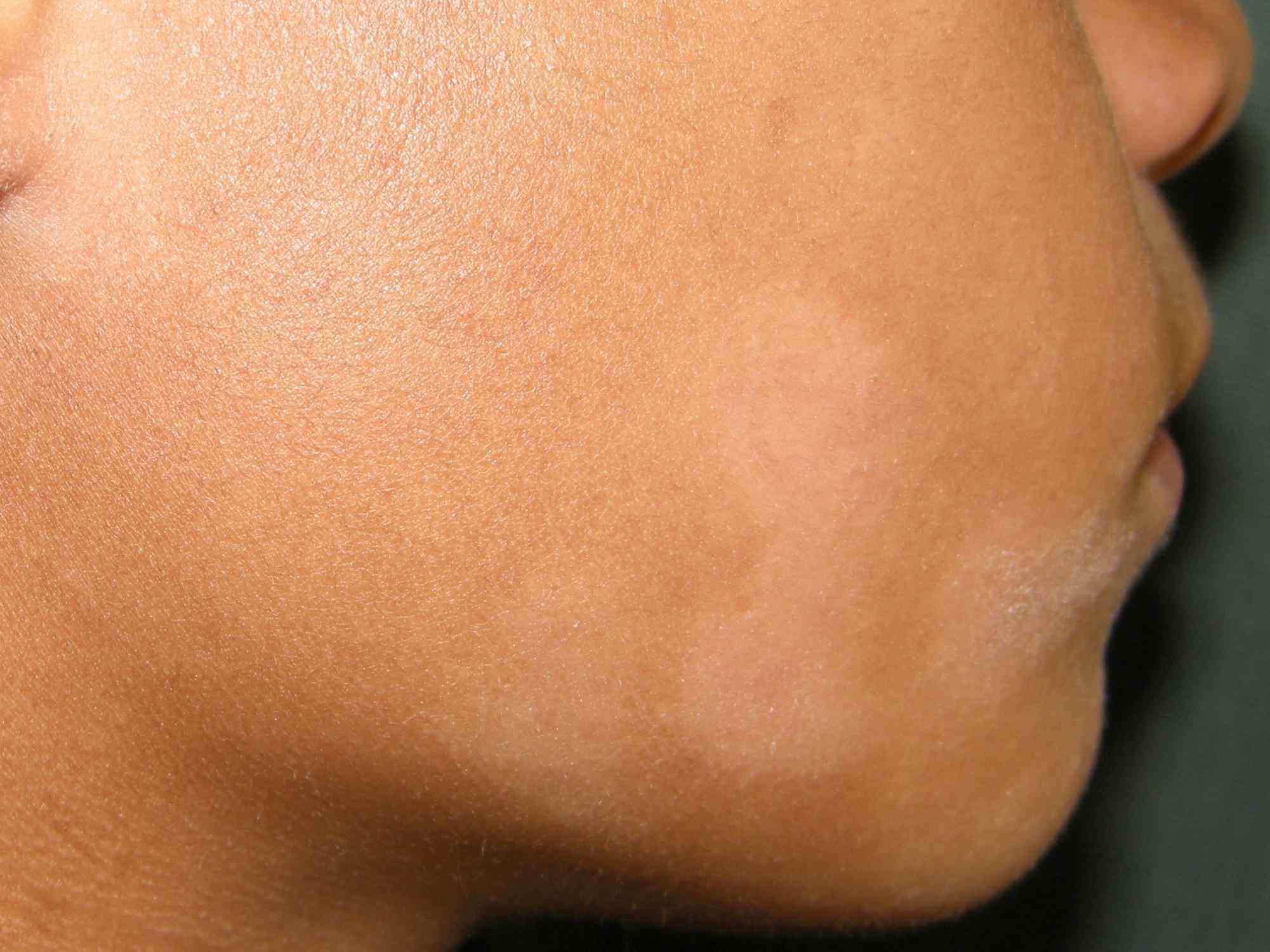
3. Persistent or Severe Rashes
Rashes can occur due to allergies, infections, or autoimmune reactions. Most rashes are mild and resolve with minimal treatment, but some may be signs of more serious illnesses such as:
- Lupus (a chronic autoimmune condition)
- Dermatitis herpetiformis (linked to celiac disease)
- Stevens-Johnson Syndrome or toxic epidermal necrolysis, rare but life-threatening reactions to medications
If a rash is accompanied by fever, blistering, or pain, or if it spreads rapidly, seek immediate medical care.
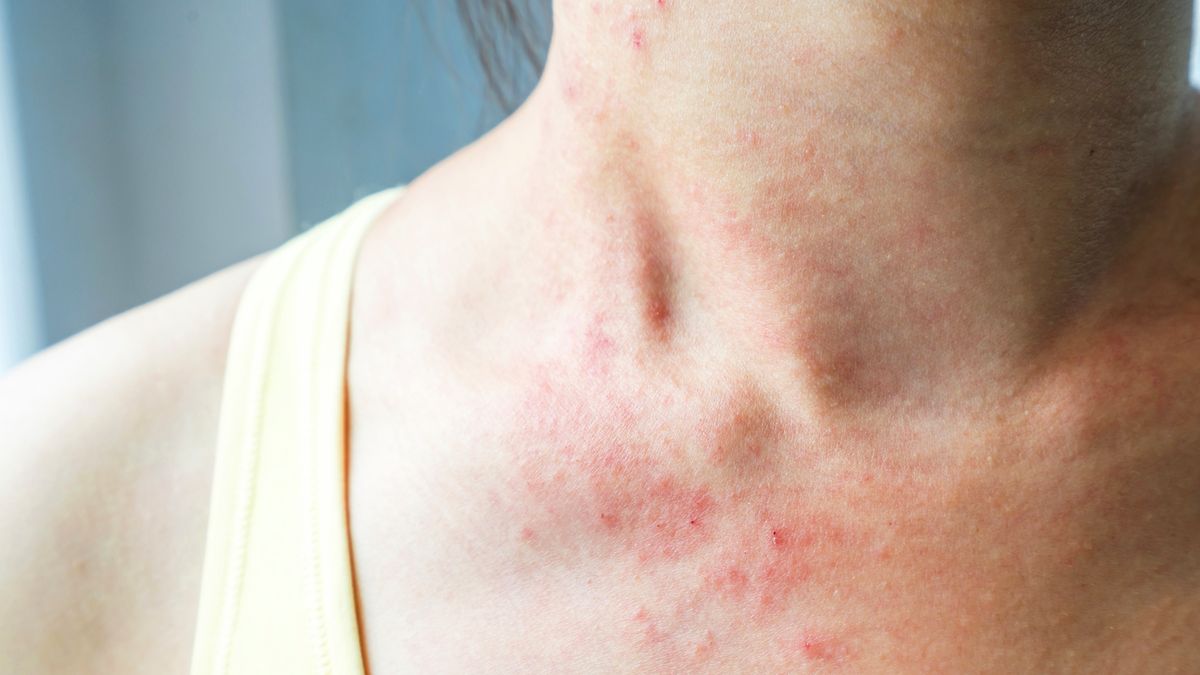
4. Unexplained Swelling or Edema
Swelling in the hands, feet, or face that persists without clear cause may be a sign of hypothyroidism, a condition in which the thyroid gland does not produce enough hormones.
The American Thyroid Association lists other common symptoms of hypothyroidism, including:
- Dry skin
- Fatigue
- Cold intolerance
- Weight gain
- Constipation³
If you experience these symptoms regularly, speak with your healthcare provider and request a thyroid function test.
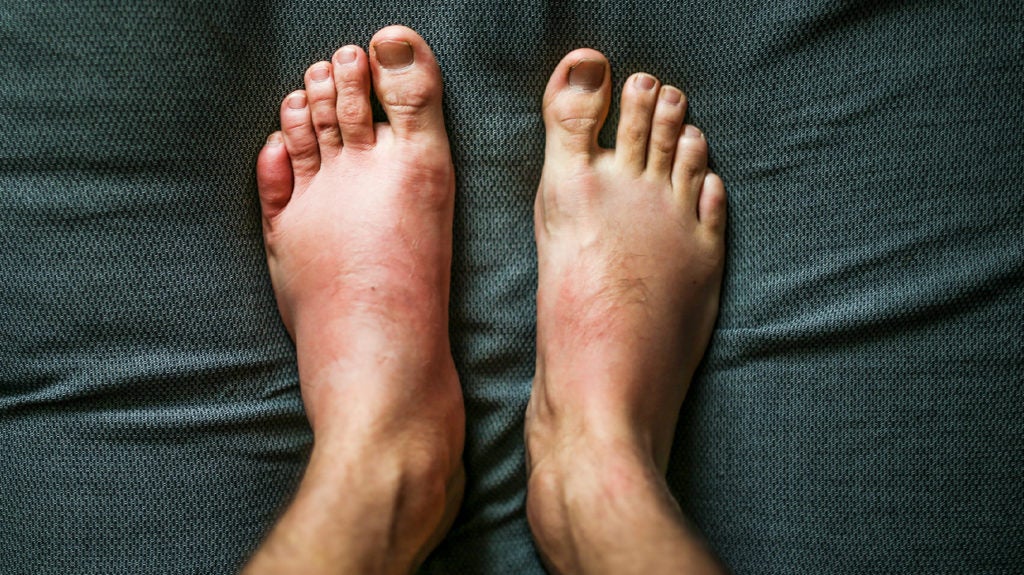
5. Changes in Moles
Moles are generally harmless, but sudden changes in size, color, shape, or the appearance of new moles in adulthood may be early warning signs of melanoma, the most serious type of skin cancer.
The American Academy of Dermatology recommends using the ABCDE rule to identify suspicious moles:
- Asymmetry
- Border irregularity
- Color variation
- Diameter larger than 6 mm
- Evolving shape or appearance⁴
Routine skin checks—both at home and by a dermatologist—can help detect skin cancer early, when it is most treatable.
6. Severe or Chronic Acne
While acne is a common skin condition, especially during adolescence, persistent or severe adult acne can sometimes signal an underlying hormonal imbalance, such as:
- Polycystic ovary syndrome (PCOS) in women
- Increased androgen levels
- Digestive imbalances or dietary triggers
If over-the-counter treatments are not effective, a dermatologist or endocrinologist can help determine the root cause and recommend individualized treatment plans.
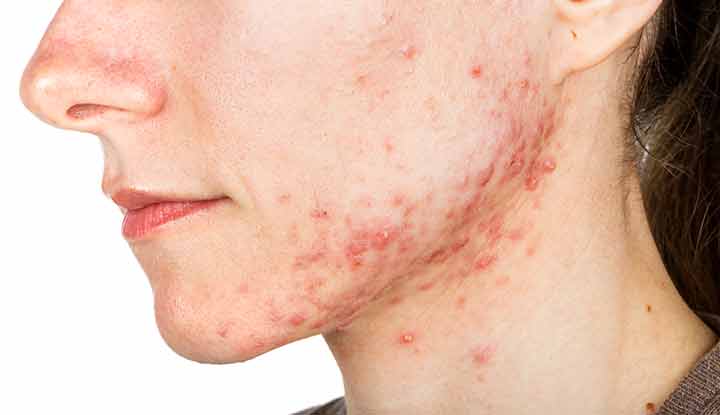
7. Dry, Flaky Skin
Occasional dryness is normal, especially in colder months. However, persistent flaking or peeling skin may be associated with:
- Eczema
- Psoriasis
- Fungal infections
- Vitamin deficiencies (especially vitamins A, D, and E)
- Hypothyroidism
If flaking is accompanied by redness, itching, or pain, it’s advisable to consult a dermatologist. A healthcare provider may recommend tests to determine nutritional status or screen for autoimmune conditions.
8. Excessive Sweating (Hyperhidrosis)
While sweating is a natural way for the body to regulate temperature, excessive sweating, particularly without physical exertion or heat, can sometimes be a symptom of hyperthyroidism or Graves’ disease, an autoimmune condition that overstimulates the thyroid.
Other symptoms to watch for include:
- Rapid heartbeat
- Unexplained weight loss
- Heat intolerance
- Anxiety
If these symptoms sound familiar, a thyroid panel and evaluation by an endocrinologist can help determine the cause.⁵
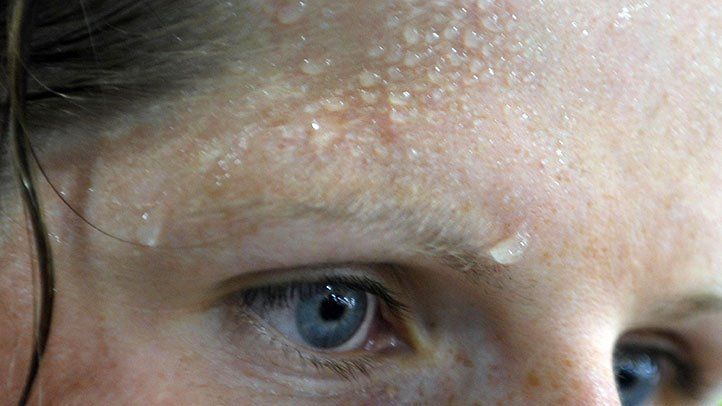
Why Skin Symptoms Shouldn’t Be Ignored
Your skin is your body’s largest organ, and it often serves as a mirror for what’s happening internally. In some cases, subtle skin changes are among the earliest indicators of systemic diseases. Identifying and addressing these signs early can prevent complications and improve treatment outcomes.
That said, not every skin change indicates a serious illness. However, if a symptom is:
- Persistent
- Unexplained
- Worsening
- Accompanied by other systemic signs (fever, fatigue, weight change)
…then it is time to schedule a medical consultation.
Final Thoughts: When to See a Specialist
Skin issues are common and often benign, but some symptoms may point to more serious underlying health problems. If you’re concerned about any changes in your skin’s appearance, texture, or behavior, don’t hesitate to seek medical advice.
Whether it’s a dermatologist, endocrinologist, or general practitioner, getting a timely diagnosis can make all the difference in protecting your health.

